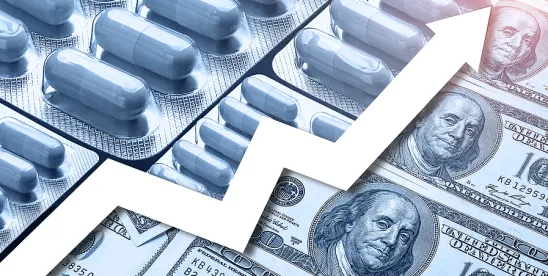On July 24, 2025, the Federal Trade Commission (“FTC”) and the U.S. Department of Justice (“DOJ”) convened the second of three public listening sessions aimed at identifying barriers to drug price competition in the U.S. healthcare system. The session is part of a broader policy push under Executive Order 14273, “Lowering Drug Prices by Once Again Putting Americans First,” which mandates a coordinated federal effort to investigate and dismantle anticompetitive practices within the pharmaceutical sector, with the overarching goal of reducing prescription drug costs for Americans. The July 24th session concentrated on issues relating to formulary design, benefit management, and the misuse of regulatory mechanisms that may restrict or delay generic and biosimilar market entry.
Executive Order 14273, issued on April 15, 2025, represents a continuation and expansion of drug pricing reforms advanced during President Trump’s first term. Among its most notable provisions are directives to streamline drug importation, increase transparency in Pharmacy Benefit Manager (“PBM”) compensation, promote access to generics and biosimilars, and ensure interagency enforcement against practices that hinder competition. The Order specifically calls for the FTC, DOJ, Department of Health and Human Services, and Department of Commerce to solicit stakeholder input through listening sessions, culminating in a public report to the President no later than October 12, 2025.
The July 24th session was divided into two substantive panels. The first panel addressed how certain formulary and benefit design practices may serve to entrench market incumbents and restrict access to more affordable therapeutic alternatives. Speakers examined the role PBMs and vertically integrated health insurers play in determining drug coverage, with particular attention to the use of rebate structures that may incentivize exclusion of lower-cost generics or biosimilars from formularies.
The second panel shifted focus to regulatory practices that may be strategically used by brand manufacturers to delay or obstruct generic and biosimilar competition. Panelists discussed improper or misleading patent listings in the FDA’s Orange Book, the strategic deployment of sham litigation to trigger automatic stays on generic approvals, and the misuse of citizen petitions to delay regulatory action.
The final session in the series, titled “Turning Insights into Action,” is scheduled for August 4, 2025. It is expected to synthesize stakeholder feedback from the first two sessions and preview specific recommendations the agencies will submit to President Trump in their October report.



 />i
/>i

